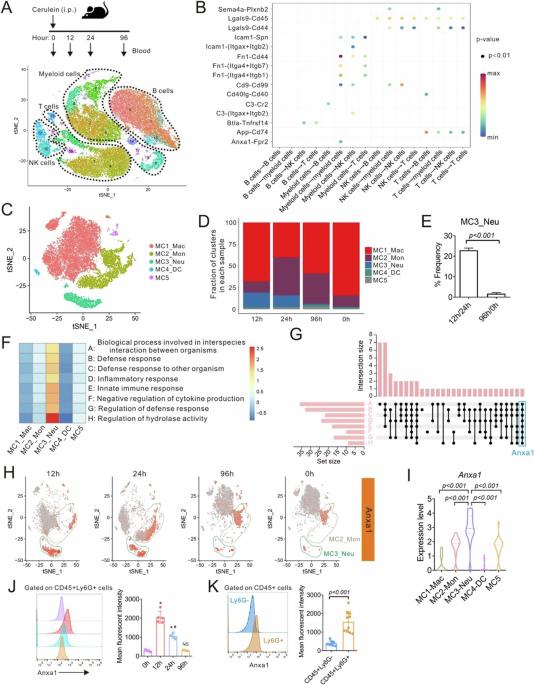Annexin A1 regulates inflammatory-immune response and reduces pancreatic and extra- pancreatic injury during severe acute pancreatitis
IF 4.5
3区 医学
Q1 GENETICS & HEREDITY
引用次数: 0
Abstract
Severe acute pancreatitis (SAP) poses significant challenges due to its complex pathophysiology, which includes inflammatory-immune responses that cause considerable damage to both the pancreas and other tissues. In this study, we explored the role of Annexin A1 (Anxa1), a glucocorticoid-regulated protein recognized for its anti-inflammatory properties, in regulating inflammation during acute pancreatitis. Using flow cytometry, single-cell RNA sequencing, and gene expression analysis, we examined how Anxa1 expression is regulated in myeloid cells throughout acute pancreatitis, employing various animal models to evaluate the consequences of modulating Anxa1 on injuries induced by SAP. Our findings revealed dynamic regulation of Anxa1 expression in myeloid cells, with mice lacking Anxa1 exhibiting worsened pancreatic injury and heightened systemic inflammation, resulting in significant damage to extra-pancreatic organs such as the lungs, liver, and kidneys. In contrast, treatment with Ac2-26, a synthetic peptide derived from Anxa1, effectively mitigated both pancreatic and extra-pancreatic inflammation and tissue damage. Overall, this study highlights the critical role of Anxa1 in modulating inflammatory responses during acute pancreatitis. Targeting Anxa1 presents a promising therapeutic strategy to mitigate pancreatic injury and prevent systemic complications associated with severe acute pancreatitis.

Annexin A1 可调节炎症免疫反应,减少重症急性胰腺炎时胰腺和胰腺外的损伤。
严重急性胰腺炎(SAP)由于其复杂的病理生理,包括对胰腺和其他组织造成相当大损害的炎症免疫反应,提出了重大挑战。在这项研究中,我们探讨了膜联蛋白A1 (Anxa1)在急性胰腺炎期间调节炎症的作用。膜联蛋白A1是一种糖皮质激素调节蛋白,具有抗炎特性。利用流式细胞术、单细胞RNA测序和基因表达分析,我们研究了急性胰腺炎期间髓细胞中如何调节Anxa1的表达,采用各种动物模型来评估调节Anxa1对SAP诱导的损伤的影响。我们的研究结果揭示了髓细胞中Anxa1表达的动态调节,缺乏Anxa1的小鼠胰腺损伤加重,全身性炎症加剧。导致胰腺外器官如肺、肝和肾的严重损伤。相比之下,Ac2-26(一种从Anxa1衍生的合成肽)治疗有效地减轻了胰腺和胰腺外炎症和组织损伤。总之,本研究强调了急性胰腺炎期间Anxa1在调节炎症反应中的关键作用。靶向Anxa1是一种很有前景的治疗策略,可以减轻胰腺损伤,预防与严重急性胰腺炎相关的全身并发症。
本文章由计算机程序翻译,如有差异,请以英文原文为准。
求助全文
约1分钟内获得全文
求助全文
来源期刊

Genes and immunity
医学-免疫学
CiteScore
8.90
自引率
4.00%
发文量
28
审稿时长
6-12 weeks
期刊介绍:
Genes & Immunity emphasizes studies investigating how genetic, genomic and functional variations affect immune cells and the immune system, and associated processes in the regulation of health and disease. It further highlights articles on the transcriptional and posttranslational control of gene products involved in signaling pathways regulating immune cells, and protective and destructive immune responses.
 求助内容:
求助内容: 应助结果提醒方式:
应助结果提醒方式:


